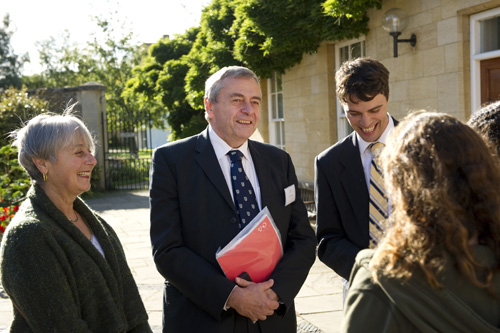
大衛·沃森教授爵士 (劍橋大學碩士大學, 美國賓夕法尼亞大學博士學位) 是高等教育和青教授鄧普頓大學校長, 牛津大學, 英國. Sir David began his career as an intellectual historian. He has contributed widely to developments in UK higher education. He chaired the UK’s Inquiry into the Future for Lifelong Learning, 並共同撰寫的報告, 通過學習生活. 他被封為爵士 1998 for services to higher education. 在 2009, he received the Times Higher Education Lifetime Achievement Award. I had the opportunity to get Sir David’s views on higher education and a life of learning.
什麼樣的教育系統將允許一國擁有全球競爭所需的人的技能?
在我看來,一個現代社會的關鍵要求是流體, accessible and responsive system of tertiary and lifelong learning. Foundations in compulsory education are clearly essential, and universal access to primary education has been correctly identified as a United Nations Millennium goal. 然而, 現在有全球認可,在現代生活中的充分參與,需要繼續教育.
在 2008-2009, I was privileged to chair a Commission on the Future of Lifelong Learning in the UK. In our report, 通過學習生活, 我們開始的前提是, “學習權是一項人權, 與個人成長和解放連接, 繁榮, 組和社區團結, 以及全球責任。” 最近, 第三屆新興市場研討會在綠普頓學院 (一月 2012) 確定高等教育既是 “持續的和公平的經濟增長狀況” 在創造了條件滿意的,負責任的國家生活的重要元素.
什麼是你對標準化考試和大學錄取過程的意見?
I am not an expert on testing in schools. 我 是 在自學和基準信徒, 從各種角度, 從個人學習者的需求和那些誰支持他們 (包括他們的家庭) to the institutions in and through which they study. Sensible, 我怎麼了細緻入微的了解 (我們) 這樣做是任何企圖的一個重要因素 “管理的未來” 個人或機構方面.
與此同時, 世界各地的, 資格高考不同類型和需求. We have established in the UK that where and how such qualifications are earned can disguise both achievement and potential. If this is not fully appreciated, 一種脆, 精英話語能夠阻礙,協助社會流動和促進社會公平高等教育中的作用.
作為結果, 我對真正關注 “道德恐慌” that surround university admissions. In the UK we talk about “擴大參與” 就好像它是作為所謂同一 “公平接入,” 和 反之亦然. The two are logically separable phenomena. The first – 讓更多的學生有資格和起始門 – is a big problem in both developed and developing societies. 第二 – 他們選擇應用, 和被錄取 – is a comparatively tiny problem. Merging the two can also lead to empirically weak and socially patronizing conclusions. Well-qualified students with disadvantaged backgrounds who choose non-standard routes through the system are often making rational and life-enhancing decisions.
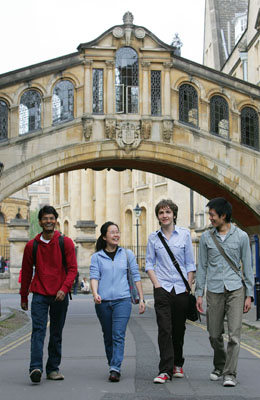
是否有足夠的注重批判性思維在今天的教育體系?
What makes higher education special is its facilitation of conversations between more and less experienced learners. A degree of independence and self-confidence is vital. 在這方面,我看到一些令人鼓舞的事情.
公共話語在很大程度上,目前由感知為主 (無論是歡迎還是不推薦) 學生的工具主義. 最重要的就是 “就業” (比更 “業”) and whether or not students are prepared for it. 與此同時, 學生自己進一步的驚慌失措預期: 通過返回到文科, 通過返回到志願 (甚至當他們同時必須努力更加頻繁比他們的前輩的錢), 和振興學生主導的政治行動 (世界各地).
有什麼可以做,以更好地滿足個人的情感和智力潛能?
我目前工作的有關項目 “改造索賠” made by and for higher education. I am intrigued by how varied these claims have been over the long history of the higher education enterprise, but also by how strong and determined they invariably are. Essentially my argument is that such claims represent a moving combination of recurrent themes, 幾乎所有出席創立現代大學, 並承擔個別蠟,或根據主要減弱 (但不排) 外部影響.
最關心的宗旨和高等教育成果索賠是不可還原的個人主義: 它會改變你的生活, 通過轉換或確認的信仰, 通過提高你的性格, 給你適銷對路 “能力,” 通過你的社區更好成員, 或者乾脆 “能” of operating more effectively in the contemporary world. All of these qualities scale up, 當然, 但在不同的方式.
首先, the historical perspective is important. Almost all higher education institutions were founded, and invested in by particular communities and their representatives to serve social purposes. Success in higher education has, of course always represented a private good and normally a “positional” advantage. 然而, it has also always incorporated and resonated with the concept of “public good.”
其次, a trap to avoid is that of cultural specificity. In the course of a recent global investigation, set out in our book 該大學從事, my colleagues and I found strong evidence of universities in the South and East doing more with less than those in the relatively privileged North and West (勞特利奇, 2011). I perceive a stronger sense of societal pull (over institutional push) in terms of the universities in that part of the world. Too often European (including British) and North American universities can rest on their laurels, and think that they can achieve their goals just by “being there.”
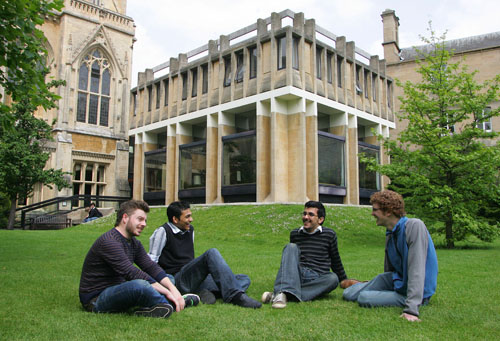
From a broader perspective does your country’s definition of educational excellence take into account the quality of life of individuals and of society?
證據是來自英國的強烈,社會成員誰曾義務教育後的教育的積極體驗生活得更健康, happier and more democratically tolerant lives.
首先, as we argued in 通過學習生活, a successful learning life-course improves your chances of taking control of your destiny.
What needs to be done to increase students’ knowledge and understanding of other countries and cultures?
Nearly all university campuses are now “global.” Probably most important is the fact that the university campuses in the UK (我懷疑在其他一些國家) 處於領先地位的廣大市民在展示民族, cultural and national diversity. In the UK at present, a majority of Higher Education Institutions now has students from over one hundred countries and several have a majority who are bi-lingual. Paul Ramsden, former head of the Higher Education Academy in the UK, has spoken about “intercultural fluency” as a “central goal of every higher education curriculum.” Universities taking up this challenge will often find that they are following – not leading – their student bodies.
Does higher education (in Martha Nussbaum’s ringing phrase) “cultivate humanity”? The simple answer has to be that it can; that it doesn’t necessarily do; and that there are other honorable ways of achieving the same end. 它是, 但, 我相信, generally good at this important job.
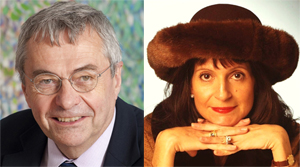
Photos courtesy of PA Photocall and Green Templeton College, 牛津大學.
在全球搜索教育, 和我一樣,全球知名的思想領袖,包括邁克爾·巴伯爵士 (英國), 博士. 邁克爾座 (美國), 博士. 萊昂特司特因 (美國), 博士. 琳達·達林 - 哈蒙德 (美國), 博士. 馬達夫恰範 (印度), 邁克爾·富蘭教授 (加拿大), 霍華德·加德納教授 (美國), 伊馮娜赫爾曼教授 (荷蘭), 克里斯汀Helstad教授 (挪威), 讓·亨德里克森 (美國), 玫瑰Hipkins教授 (新西蘭), 科妮莉亞Hoogland教授 (加拿大), 太太. 尚塔爾考夫曼 (比利時), 多米尼克·拉方丹教授 (比利時), 休·勞德教授 (英國), 本·萊文教授 (加拿大), 巴里McGaw教授 (澳大利亞), Ř教授. 納塔拉詹 (印度), 博士. 丹尼斯教皇 (美國), 斯瑞達拉賈戈帕蘭 (印度), 博士. 黛安·拉維奇 (美國), 肯·羅賓遜爵士 (英國), 帕西SAHLBERG教授 (芬蘭), 安德烈亞斯·施萊歇 (PISA, 經合組織), 博士. 安東尼·塞爾頓 (英國), 博士. 大衛·謝弗 (美國), 博士. 基爾斯滕都沉浸式 (挪威), 總理斯蒂芬·SPAHN (美國), 伊夫Theze (法國公立高中美國), 查爾斯Ungerleider教授 (加拿大), 托尼·瓦格納教授 (美國), 迪倫Wiliam教授 (英國), 博士. 馬克沃莫爾德 (英國), 西奧Wubbels教授 (荷蘭), 邁克爾·楊教授 (英國), 和張民選教授 (中國) 因為他們探索所有國家今天面臨的大畫面的教育問題. 全球搜索教育社區頁面
ç. M. 魯賓是兩個廣為傳誦的在線系列,她接受了筆者 2011 厄普頓·辛克萊獎, “全球搜索教育” 和 “我們將如何閱讀?” 她也是三本暢銷書, 其中 真正的愛麗絲夢遊仙境.
按照ç. M. 魯賓在Twitter: www.twitter.com/@cmrubinworld


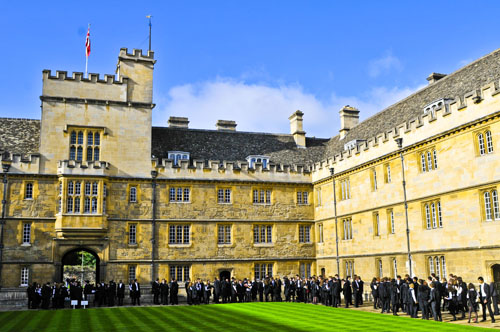


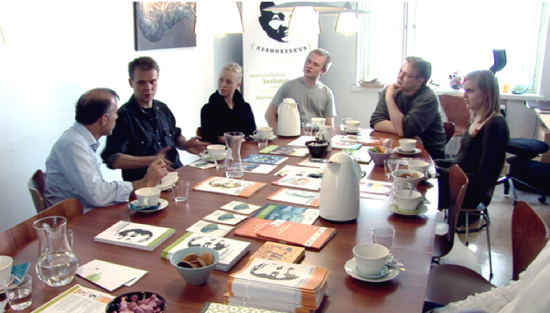
最新評論